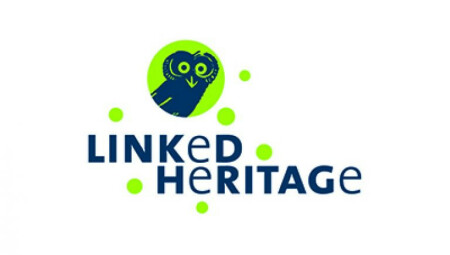Linked Heritage: coordination of standards and technologies for the enrichment of Europeana
Did you know that meemoo’s predecessors worked on no fewer than five European projects aimed at making cultural content accessible online and reusable? One of these projects was Linked Heritage. This successor to the ATHENA project had the goal of enriching Europeana with a coordinated application of standards and technologies. And it was a great success – over three million items ultimately found their way to Europeana!
Challenge
When the ATHENA project ended in 2011, there were still many obstacles blocking Europeana’s path. The follow-up Linked Heritage project addressed three of these issues: non-standardised descriptive terminologies; the absence of private sector and 20th century content; and the preservation of complex metadata models within the Europeana metadata plan.
Why Europeana?
Europeana is a web platform that was set up in 2008 to accommodate digitised collections from European cultural and scientific institutions. Collections that organisations contribute to Europeana become accessible for the general public to re-use.
Linked Heritage aimed to overcome the three obstacles with the challenging main objectives:
add large amounts of new content to Europeana, from both the public and private sector;
demonstrate an improvement in the quality of the content in terms of richness of metadata, re-use potential and uniqueness;
improve the browsing, searching, retrieval and re-use options for Europeana content.
Our role
The Linked Heritage project predates the existence of meemoo. PACKED, one of meemoo’s predecessors, was a partner in the project – we were responsible for coordinating the Flemish partners who wanted to contribute content to Europeana. Similar to the ATHENA project, we actively went in search of heritage institutions that manage collections in Flanders, to point them in the direction of Europeana. Together with the Royal Institute for Cultural Heritage (KIK-IRPA) (link in Dutch) and the Art & History Museum / Jubelpark Museum (KMKG), we were also responsible for the project’s communications and knowledge-sharing in Flanders.

In addition to Linked Heritage and ATHENA, PACKED also took part in AthenaPlus, Europeana Space and Digitising Contemporary Art – and our participation in these five European projects allowed us to gain valuable knowledge and expertise in a European network. We also shared our own knowledge of how to make cultural content accessible online and reusable.
Approach
Linked Heritage ran from 1 April 2011 until 30 September 2013. The three predefined main objectives were achieved through the use of seven work packages:
WP 1: project management and coordination – led by ICCU, Italy;
WP 2: linking cultural heritage information – led by Collections Trust, UK;
WP 3: terminology – led by the Art & History Museum, Belgium;
WP 4: public-private partnership – led by EDItEUR, UK;
WP 5: technical integration – led by the Institute of Computer and Communication Systems - National Technical University of Athens, Greece;
WP 6: coordination of content – led by The Cyprus Institute, Cyprus;
WP 7: dissemination and training – led by the University of Padua, Italy.
Work packages 2, 3, 4 and 7 set up the necessary guidelines and desired policies to manage the project’s progress. Work packages 5 and 6 fulfilled a more supplemental role – with work package 5 implementing technologies from the best practice network, and work package 6 ensuring the coordinated compilation of over three million items in Europeana.
The end result of the Linked Heritage project?
Linked Heritage ultimately led to a large-scale and long-term improvement of Europeana and its services – it was enriched on four fronts:
it was able to provide specific advice about the use of persistent identifiers in digital cultural heritage in the context of linked data;
it was around three million items richer;
the project looked at the issue of non-standardised descriptive terminologies, which benefited the quality of Europeana’s content in terms of metadata, reusability and uniqueness;
research was carried out into metadata management in the private sector, which also outlined the benefits of interoperability between Europeana and the private sector.
Partners
The Central Institute for the Union Catalogue of Italian Libraries and Bibliographic Information (Istituto Centrale per il Catalogo Unico delle biblioteche italiane e per le informazioni bibliografiche - ICCU) coordinated the project, with representatives from 20 European countries, Israel and Russia also taking part – including from ministries, government agencies, content suppliers, research centres, publishers and SMEs. The Europeana Foundation was involved as a subcontractor.
